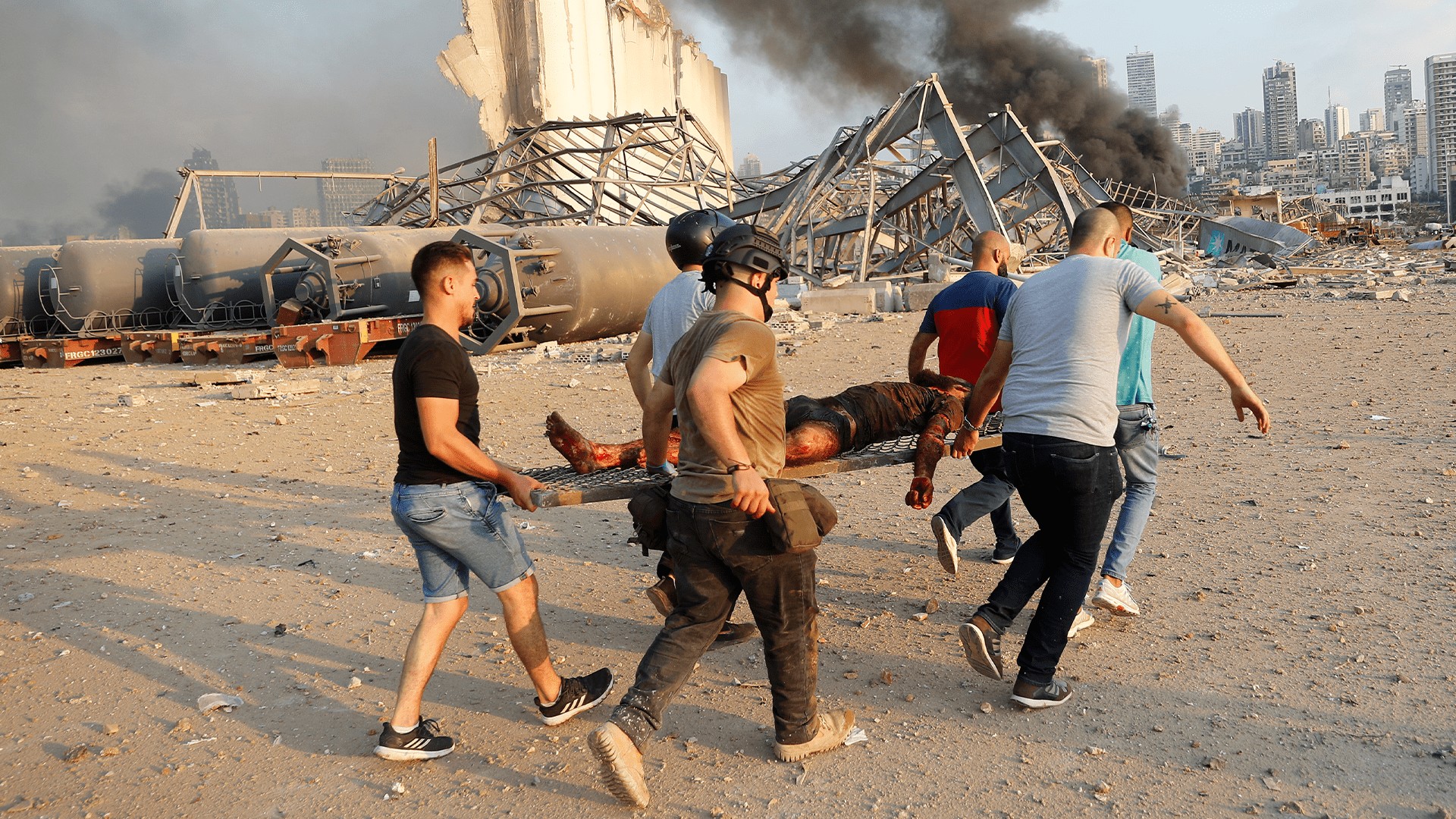Supporters of Saad Hariri, Lebanon's former prime minister, formed a human tower in an inflatable swimming pool as they called for people to boycott the vote. PHOTO: Francesca Volpi/Bloomberg via Getty Images
Lebanon’s main alliance led by Hezbollah has suffered losses in national elections as voters sick of state corruption and economic mismanagement, and traumatised by a devastating port explosion in 2020, turned against the government. Despite dominating parliament for the last 4 years, early results show that public support for the Iran-backed Shia militant group and the other parties that make up the government has weakened in favour of opposition groups. The Saudi-aligned Lebanese Forces made gains, replacing President Michel Aoun’s Free Patriotic Movement as the country’s leading Christian party.However, Lebanon’s complicated political structure means that meaningful change is unlikely to happen any time soon. The last few years have been tumultuous for the country. This was the first election after the 2020 explosion killed 218 people and devastated thousands of homes and businesses. Mass youth-led protests roiled the country in 2019 in a bid to force change among the country’s ruling class, which has let the country spiral into economic meltdown. Currently, unemployment is hovering at just under 30%.  A number of independent and opposition candidates managed to unseat some of Hezbollah’s traditional allies, such as Elias Jradi, a surgeon who pushed out Assaad Hardan from the seat he held since 1992. The results are seen as a cry of frustration against worsening living standards. Over 6 million people in Lebanon have struggled with food shortages and power cuts due to the increasing fuel prices and a lack of government subsidies. The government declared bankruptcy last month ahead of the elections. Only 41 per cent of the nearly 4 million people eligible to vote cast their ballot on the day, according to Bassam Mawlawi, the country’s interior minister, a lower turnout than the last election in 2018. Only 7 of 15 areas had declared their results at time of publication. Lebanon has a complicated sectarian political structure, based on a three-way power-sharing chamber made up of Christians, Shias and Sunnis.The power-sharing factions have ruled the country since the end of the civil war in 1990. The parties have taken the country to the verge of poverty in the past decade because of corruption, nepotism, and mismanagement by political leaders.Despite losses of the seats by Hezbollah allies, such as President Aoun’s party, the group will retain its allocated 27 seats for the Shias in Lebanon with its main Shia ally, the Amal Movement.Joanna Wronecka, United Nations Special Coordinator for Lebanon, said that the country faced a difficult journey. “Many challenges lie ahead, particularly restoring citizen’s trust in State institutions. Lebanon deserves a better future. The UN stands ready to support,” she tweeted.
A number of independent and opposition candidates managed to unseat some of Hezbollah’s traditional allies, such as Elias Jradi, a surgeon who pushed out Assaad Hardan from the seat he held since 1992. The results are seen as a cry of frustration against worsening living standards. Over 6 million people in Lebanon have struggled with food shortages and power cuts due to the increasing fuel prices and a lack of government subsidies. The government declared bankruptcy last month ahead of the elections. Only 41 per cent of the nearly 4 million people eligible to vote cast their ballot on the day, according to Bassam Mawlawi, the country’s interior minister, a lower turnout than the last election in 2018. Only 7 of 15 areas had declared their results at time of publication. Lebanon has a complicated sectarian political structure, based on a three-way power-sharing chamber made up of Christians, Shias and Sunnis.The power-sharing factions have ruled the country since the end of the civil war in 1990. The parties have taken the country to the verge of poverty in the past decade because of corruption, nepotism, and mismanagement by political leaders.Despite losses of the seats by Hezbollah allies, such as President Aoun’s party, the group will retain its allocated 27 seats for the Shias in Lebanon with its main Shia ally, the Amal Movement.Joanna Wronecka, United Nations Special Coordinator for Lebanon, said that the country faced a difficult journey. “Many challenges lie ahead, particularly restoring citizen’s trust in State institutions. Lebanon deserves a better future. The UN stands ready to support,” she tweeted.
Advertisement
